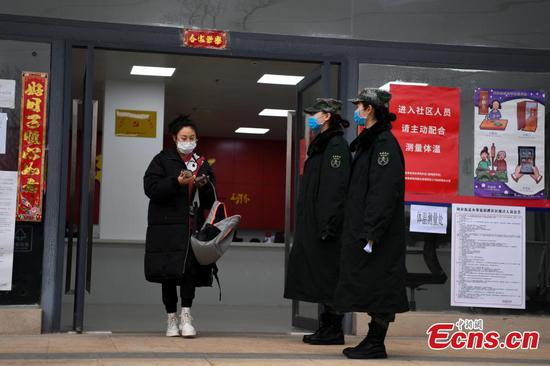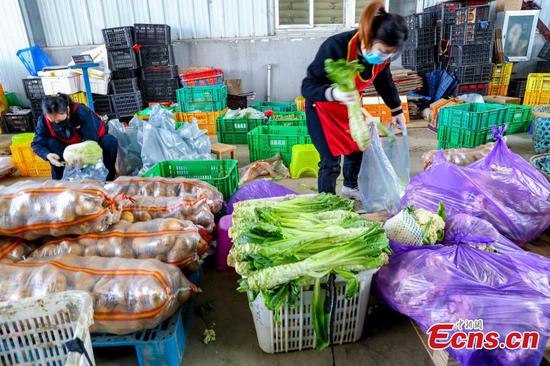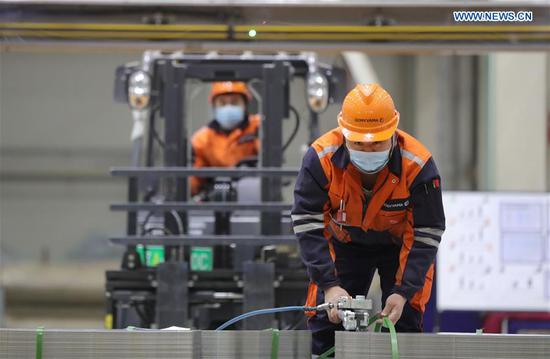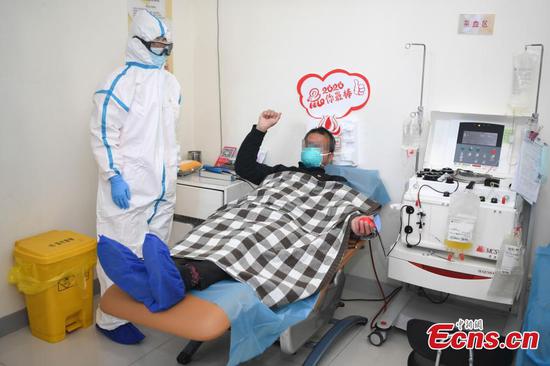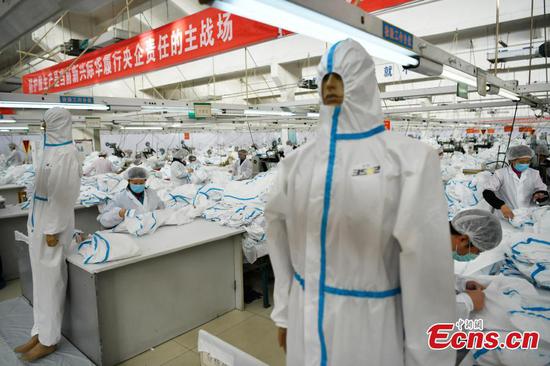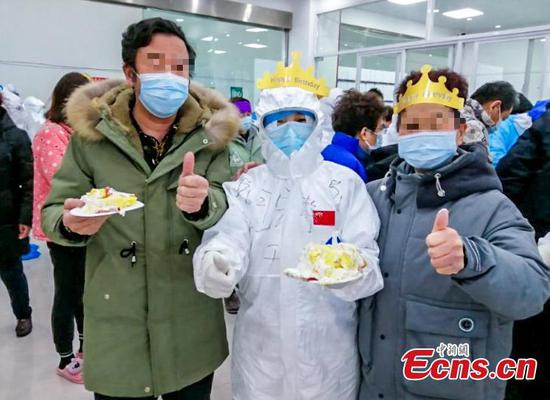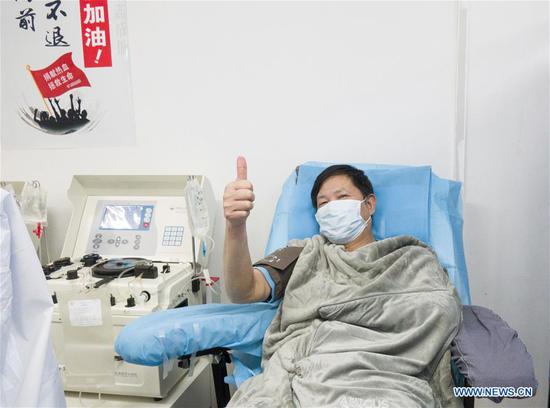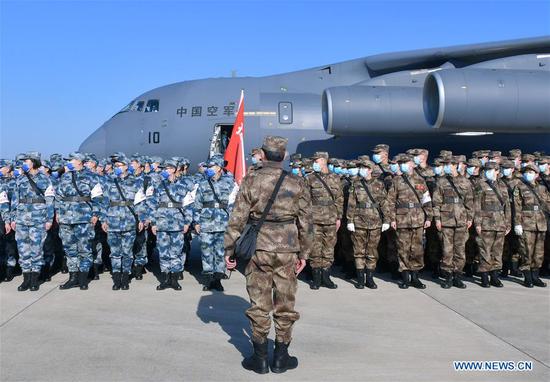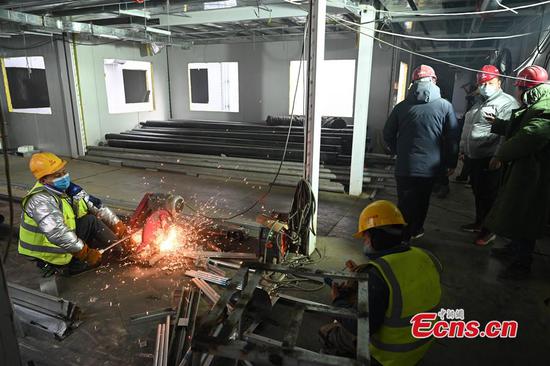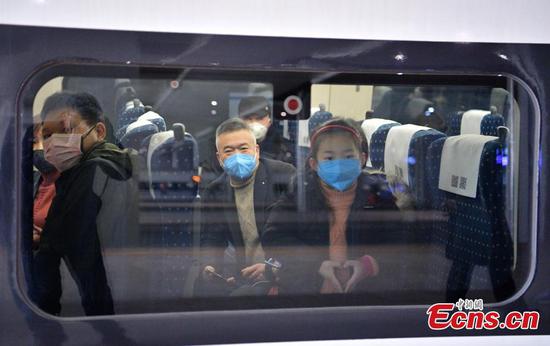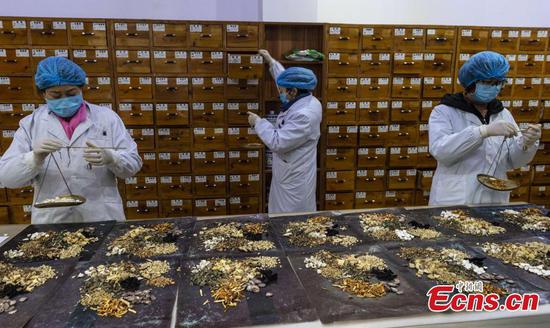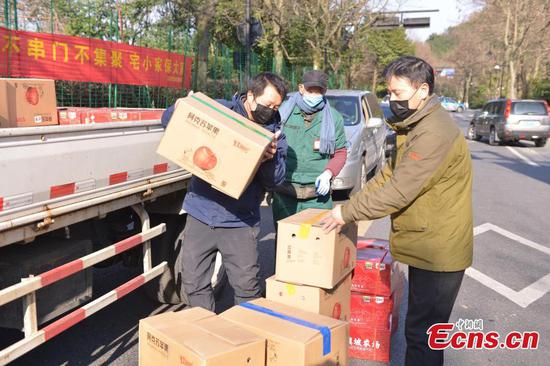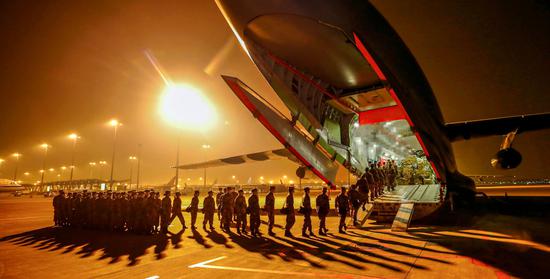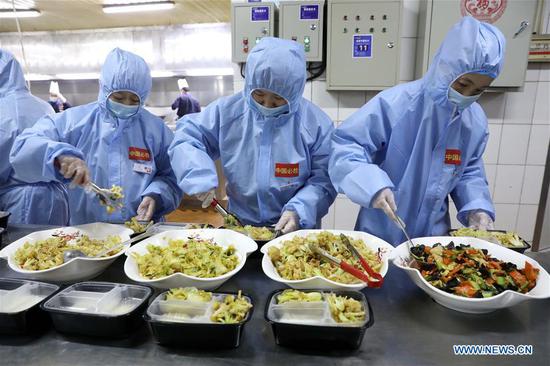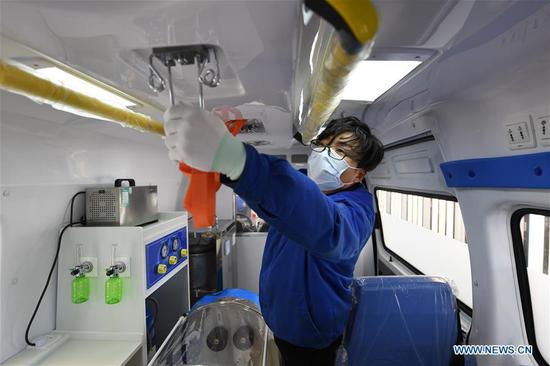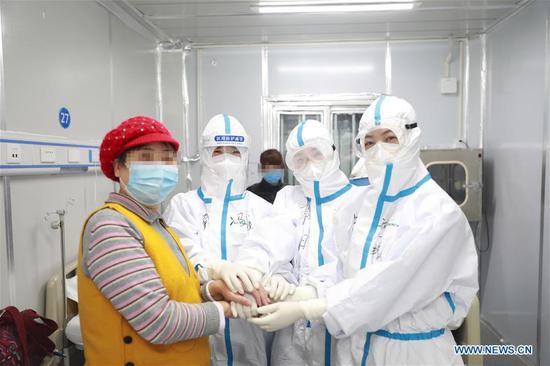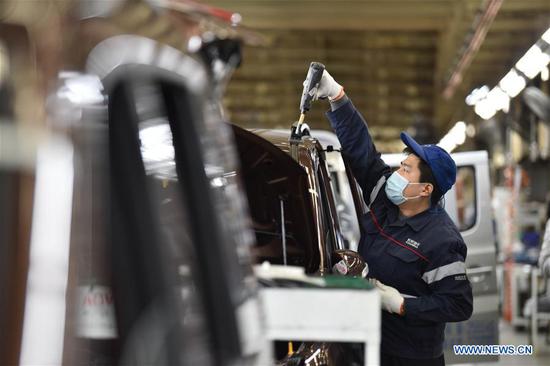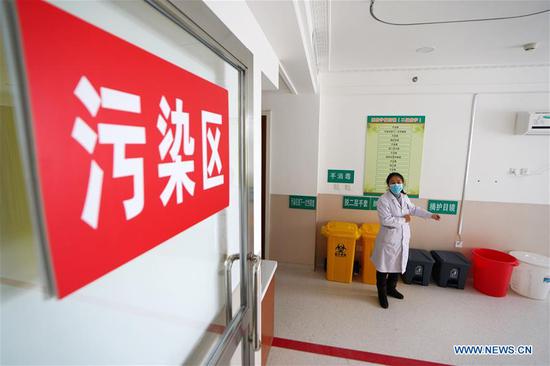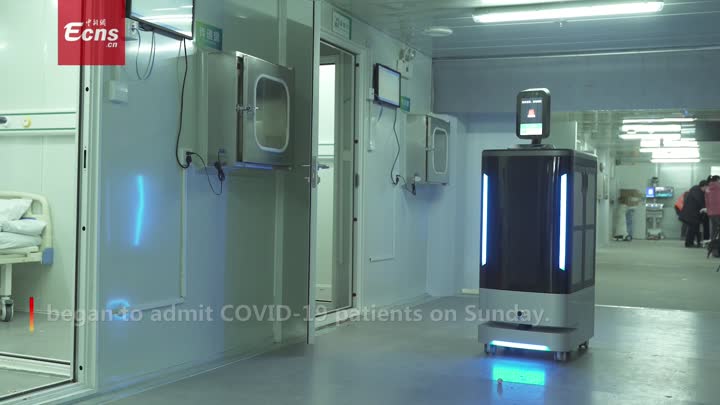
Staff work on the assembly line of sanitation vehicles in Shijiazhuang, North China's Hebei province, Feb 17, 2020. Companies resumed production with epidemic prevention measures during the outbreak of the novel coronavirus. [Photo/Xinhua]
Feng Xiuquan, a migrant worker from Guangyuan in Southwest China's Sichuan province, was almost tearing his hair out over the trip back to his workplace in Hangzhou, East China's Zhejiang province since the novel coronavirus flared.
Staying at home for two more weeks than planned after the Spring Festival, the 43-year-old was craving an injection of cash. However, the ongoing epidemic barred him from returning to the clothing factory he works at due to his fear of getting infected during the return trip, along with blocked transportation channels.
"The loss of weeks of income is not a small thing to me and my family," he said. "But I can't bear the consequences of staying in hospitals for a rather longer time if I get infected during my trip back to work."
His worry vanished when a local authority arranged a chartered flight free of charge to help him and another 153 migrant workers return to their workplaces while making sure they do not catch any infection during the trip.
"Migrant workers are among China's most vulnerable, and much of China's manufacturing industry depends on them. If they can't get back to their jobs soon, both they and the companies they work for will suffer," said Chen Pu, an economics professor at Renmin University.
The measure will curb the transmission of the virus that might spread during the travel season and guarantee the safety of both migrant workers and their workplaces, as well meet labor demands of enterprises as they resume production, he added.
According to the Ministry of Transport, an estimated 300 million migrant workers are going to travel back to their workplaces, 80 million of whom have already returned. Some 120 million workers are expected to make the trip from now until the end of February, with another 100 million expected to return next month.
To meet the employment demands of enterprises and reduce the risks of the epidemic spreading, transportation authorities across the country have been going all-out to provide charter services using various transportation means in a bid to help a large number of migrant workers return safely and smoothly to workplaces.
In Guiyang, capital of Southwest China's Guizhou province, a local railway operator has also stepped up efforts to arrange a customized train on Sunday, carrying nearly 300 migrant workers who are returning to work in Hangzhou.
The move came after Hangzhou had applied to the local railway operator for a chartered train service for those returning to work from places where the epidemic situation is relatively stable and the number of employees coming to Hangzhou is high, according to China Railway Chengdu Group.
Special measures have been arranged for passengers on the train, including strict temperature monitoring, better ventilation and scattered seating.
More "point-to-point" direct trains for returning migrant workers will be opened to help workers from Southwest China's Sichuan, Chongqing and Guizhou return to areas, including Beijing, Shanghai and South China's Guangzhou, after the Spring Festival, the company said.
Transport departments at all levels also have ramped up chartered bus support to provide safe transportation for migrant workers in an effort to meet the labor demand for enterprises as they resumed production.
To reduce the cross-infection risk of the novel coronavirus, the ministry made it specific that the number of passengers on inter-provincial and inter-city chartered buses should be less than half of their approved passenger capacity.
Other measures outlined include a toll-free policy for chartered buses, and strengthened epidemic prevention and control measures, as well as improved services for passengers and drivers at interchange stations.
As of Friday, transport authorities have organized chartered buses for point-to-point transportation and brought 26,000 rural workers back to cities for work.












